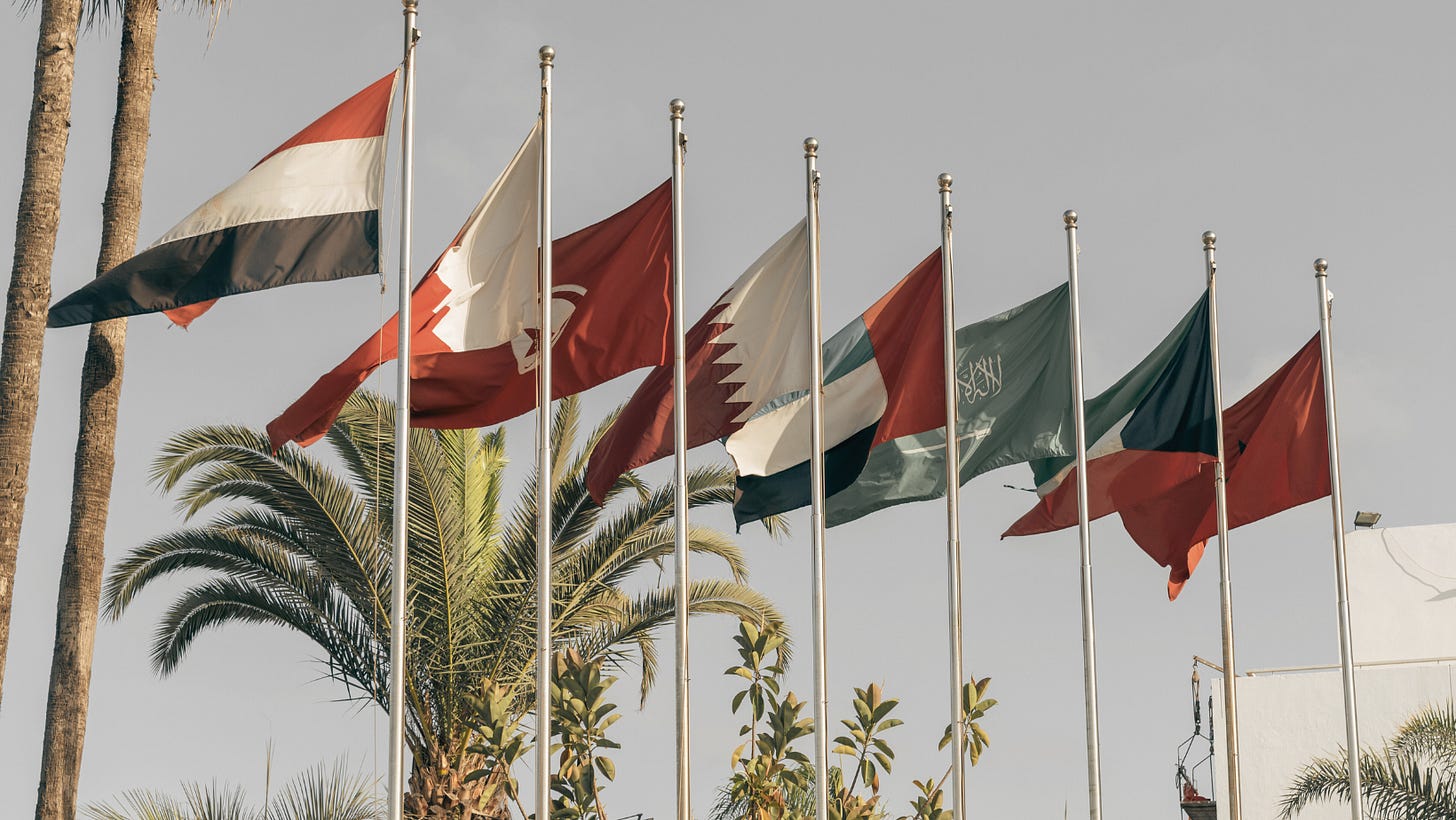The New Middle East Twenty-two Years Post-9/11
The political and socioeconomic experiment that is the Middle East is reaching critical mass as Western nations are increasingly less interested in meddling in its affairs.
The most significant transformation of the past decade is the evolution of Middle Eastern Gulf states from ideological to transactional. The Saudi Arabia of today is not defined by Wahabism, but by fancy buildings and resorts. Qatar is not defined by its support of the Muslim Brotherhood—but by the World Cup and stadium revenue. The Abrahamic accords demonstrated clearly how, increasingly, states put business and economic national security interests ahead of ideology. Gulf states finished last year with a surplus. Amidst all the talk and virtue signaling from the West about bringing democracy to the Middle East, the Middle East has brought in money and formed alliances with our adversaries.

The remaining ideologues in the Middle East are the region's biggest losers today. Whether it's Iran and its allies or ISIS—those still clinging to regressive religious dictatorship above all else are missing out on key opportunities for the advancement of their nations. Turkey does not discriminate in terms of who it conducts business with; it will meet with NATO on one day and Russia the next, coming out of each conversation having struck business deals with both. In places like Iran, Afghanistan, or Lebanon, the insistence on promoting ideology above progress all but ensures that they will continue to be failed states as more reasonable nations advance in the global economy. Including women in the educational and professional sectors is a simple way to grow an economy and strengthen a society, something Afghanistan and Iran are once again attempting to curtail to their detriment. Iran’s economy is on a downward spiral as it tries to crack down on protests by disaffected youth who feel they have nothing to lose. Afghanistan is regressing further, pushing its population closer to poverty and starvation as a result. Lebanon crumbled. Iraq is a banana Republic going through an identity crisis despite the facade being put forth by the current government. After the abysmal failure of the Arab Spring, the appeal of ideologues has diminished. Now, the region’s leaders tend to take their foreign policy, economic, and national security interests into their own hands and look less to the West for aid or guidance, partly due to the subsequent failures of US involvement in the Middle East post-9/11.
While it might appear positive for nations to have self-determination, in many cases, that vacuum left empty by the disinterested West is being filled by rising powers like Russia and China, who similarly put transactional economic interests above ideological principles or ethical concerns. Whatever a country’s ideological, religious, or political persuasion, everyone understands the language of money and power.
The United States and other Western nations should not underestimate how profoundly the Middle East’s rise or fall will impact our economic systems and way of life. Europe is often directly affected by refugee crises, and as the global economy trends away from oil, Gulf states will look to expand their revenue streams into other endeavors. Those conversations are almost certainly already underway, and the United States is certainly not leading them if we are participating meaningfully at all. The political and socioeconomic experiment of the Middle East is reaching critical mass as Western nations are increasingly less interested in meddling in its affairs, and we must take into account the developments that are inevitably coming down the pike. Suppose the Islamic Republic of Iran obtains nuclear weapons. In that case, the consequences will be far-reaching and will have implications that stretch all the way to Russia’s war against Ukraine and the global supply chain writ large.
Whether in a flawed democratic country like Tunisia or a theocratic one like Iran, youth across the Middle East are not looking for a grand or a holy ideological purpose—they are looking for a job. The solution to propelling the region toward more prosperity and stability does not lie in more international aid or workshops about gender identity. It depends upon investments in functioning economic systems and people who simply want to work toward a better future for themselves and their families.


